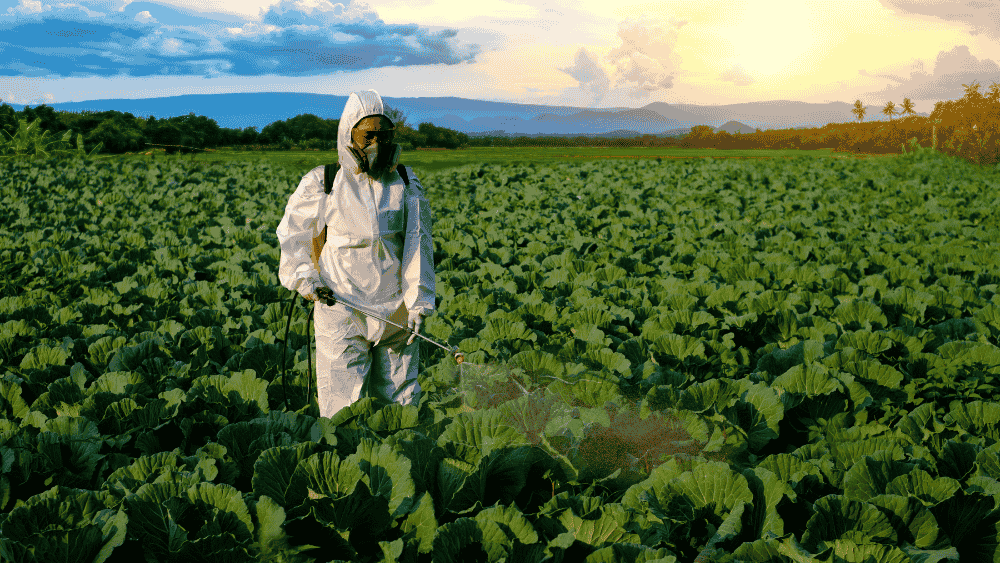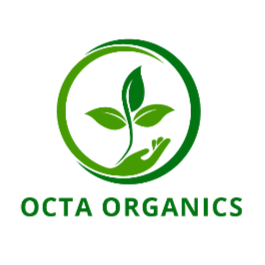
Fungicide for Plants: Everything Farmers Need to Know
Share
Fungal infections are one of the most stubborn and destructive problems farmers face, often sneaking in unnoticed until crops are severely damaged.
From wilting leaves to moldy fruits, fungal pathogens can devastate both yield and quality. In tropical and humid conditions, they spread rapidly, turning healthy fields into breeding grounds for disease. Whether you grow vegetables, fruits, or grains, protecting your plants against fungal diseases is no longer optional—it’s essential.
That’s where an effective fungicide for plants becomes crucial.
These treatments act as shields against fungal invasions, helping you protect your crops before it’s too late. Whether you’re managing a small farm or large-scale production, adopting the right fungicide practices means safeguarding the future.
Although modern farmers consider chemical-based pesticides harmful to plant health and growth, organic fungicides offer a safer and more sustainable option.
In this blog, we’ll cover everything farmers need to know to fight fungal threats effectively and sustainably—from the benefits of using fungicides to the common diseases they treat and the best fungicide for plants you can use.
What is Fungicide for Plants?
A fungicide for plants is a type of pesticide used to prevent, control, or eliminate fungi, microscopic pathogens that cause plant diseases. It works by either killing fungal spores on contact or stopping them from spreading further. These solutions come in sprays, powders, or soil applications, depending on the crop and condition.
Modern farmers also opt for organic fungicide options that use natural ingredients like neem oil, copper, or beneficial microbes. These are especially popular in sustainable farming as natural fungicides have lower environmental impact, have no side effects on humans and animals, and promote plant health and yield.
Key Benefits of Using Fungicide for Plants
Using fungicides is not just about preventing or treating fungal diseases in plants; it is about ensuring the health and productivity of crops and plants. Fungicides prove beneficial to your crops, fields, and your agricultural practices in several ways. Here are some key benefits of using fungicides for plants;
Prevents Early Disease Outbreaks
Fungicides stop fungal infections before they get out of control. Early application acts as a protective barrier, keeping your crops safe from the first sign of fungal activity and ensuring healthier plant growth throughout the season.
Protects Crop Quality
High-quality crops demand vibrant leaves, unblemished fruits, and healthy roots. A fungicide for tomatoes is especially vital because tomatoes are sensitive to blights and spots that ruin their market appeal and decrease value, affecting your profits.
Enhances Crop Yield
By maintaining plant health, fungicides promote higher fruit and grain production. A disease-free plant performs better during photosynthesis and nutrient absorption, directly translating into improved output at harvest and better yield quality.
Reduces Post-Harvest Losses
Fungal diseases don’t stop after harvest. They continue to affect storage and shelf-life. Using fungicide for plants ensures crops stay intact longer, reducing waste and improving profitability during storage and transport.
Cost-Effective Crop Protection
Timely use of fungicides prevents major losses. Instead of replanting or facing crop failure, a relatively small investment in treatment ensures season-long protection and reduced input costs over time, directly increasing your profitability.
Supports Organic and Sustainable Farming
Natural fungicides like neem and microbial sprays provide effective protection without synthetic chemicals. This makes them ideal for eco-conscious farmers focused on long-term soil health and biodiversity using organic fungicide solutions.
Common Types of Fungicide for Plants
Plant fungicides are available in multiple types and are used based on different factors such as the type of crop, season, type of fungal disease, and more. Understanding different types of fungicides empowers farmers to choose wisely. Let’s break down some common types of fungicide for plants;
Organic Fungicides
Organic fungicide options are derived from natural sources such as plant oils, beneficial microbes, or minerals. They are widely used in sustainable farming to treat and prevent fungal infections without harming the environment or beneficial insects.
Contact Fungicides
These fungicides remain on the surface of plant leaves and kill fungal spores upon contact. They do not penetrate the plant tissue, making them suitable for early-stage fungal infections. Reapplication is often required to maintain effectiveness.
Systemic Fungicides
Systemic fungicides are absorbed by the plant and move through its vascular system, offering internal protection. When dealing with stubborn fungal diseases in plants, systemic fungicides are highly effective for long-term control.
Translaminar Fungicides
These fungicides penetrate the treated leaf surface and redistribute within the leaf tissue. They provide protection to both sides of the leaf, making them more efficient. They are often used in rotation with systemic treatments to avoid resistance.
Seed Treatment Fungicides
Used to treat seeds before planting, these fungicides protect young plants from soil-borne fungal infections. By ensuring that crops start strong, seed treatments act as a preventive step in disease management and improve seedling health.
Best Fungicide for Plants: Organic Solutions for Farmers
While there are multiple types of fungicides for plants available, organic fungicide solutions prove the most effective against fungal infections while keeping your plants safe and healthy. It is the reason why modern farmers are now moving away from chemical-based pesticides and are adopting organic fungicides prominently.
If you’re also considering using organic fungicides, below we have listed some of the best organic fungicides you can begin with;
Organic Fungicide Products
Organic fungicide products from trusted brands like Octa Organics prove to be the most effective solution against fungal infections. These products are made using naturally derived products that ensure strong protection and enhanced plant health.
Neem Oil
A widely trusted organic fungicide, neem oil contains azadirachtin, which disrupts the life cycle of fungi. It's effective against powdery mildew, rust, and leaf spot. Neem oil is safe for pollinators, easy to apply, and supports integrated pest management.
Sulfur Dust
Sulfur is a naturally occurring element and an age-old solution for controlling fungal diseases in plants. It disrupts fungal enzyme activity and is effective against powdery mildew and rust. It’s suitable for use on citrus fruits, especially in dry climates.
Bacillus subtilis
This beneficial bacterium works by colonizing plant surfaces and outcompeting fungal pathogens. It’s a biofungicide safe for use on vegetables, fruits, and herbs. Products containing Bacillus subtilis are effective against leaf spots and blights.
Potassium Bicarbonate
Used as a foliar spray, potassium bicarbonate alters the pH on plant surfaces, making it inhospitable for fungi. It is commonly used to treat powdery mildew and black spot on vegetables and ornamentals.
Garlic Extract
Garlic contains sulfur compounds that have strong antifungal properties. It is an effective fungicide for plants battling molds, rust, and mildew. Garlic extract is often used with other natural ingredients in commercial organic formulations.
Start Using Plant Fungicides Effectively with Octa Organics
Fungal diseases don’t wait, and neither should you. With the right application techniques and choice of product, farmers can gain the upper hand against harmful pathogens. Whether you're battling blight or trying to preserve crop quality, selecting the best fungicide for plants ensures your hard work doesn’t go to waste.
A healthy crop is a profitable crop, and smart disease control is the foundation of sustainable farming. That’s where Octa Organics stands out. With a premium range of organic agricultural products tailored for real-world farming challenges, Octa Organics helps you take control, fight diseases, and grow healthy plants—naturally.

